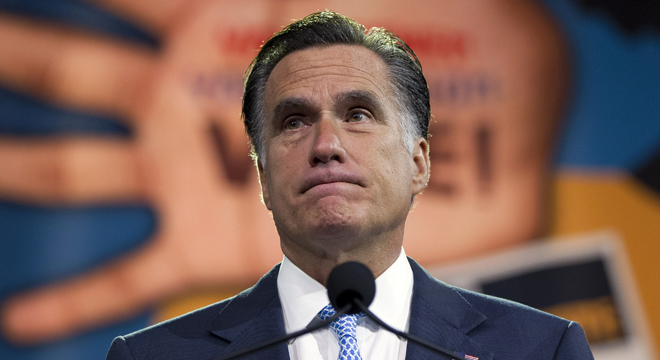Technical questions are, for the moment, dominating the dispute over when Mitt Romney really left Bain Capital. But from my point of view, on the sidelines of this particular story, it all seems much, much simpler.
The reason this issue is in dispute at all is because Mitt Romney wants full political inoculation from anything Bain did between early 1999 and 2002, when he definitely truly left the company. He wasn’t in charge, except in a narrow, technical sense; he’d delegated his duties; Bain’s business practices from that period can’t be hung around his neck.
If you’re not already belly-laughing think about it this way.
For Romney to be truly off the hook politically for the stuff Bain was doing, he’d have to claim not lack of control, but lack of knowledge. And that’s just not going to wash with anyone. He could try going the “I didn’t have even the slightest idea what the company I technically still owned was doing” route, but he’d be marking himself as either dishonest or incompetent.
And yet that’s really his only out. Just a guess, but if, hypothetically speaking, he’d learned during the 1999-2002 stretch that Bain had made a practice of poisoning the water supply in a Midwestern factory town, he’d have severed all ties, legal and otherwise, with the company.
But that didn’t happen. More likely, Bain went on doing what it had always done, and with Romney’s tacit stamp of approval. So he owns it.
Take another example. If I were the editor of a political news site, and then one day delegated my responsibilities to my staff to take a long book leave, I’m sure I’d want to retain my title. If I had a generous publisher, I might even get an honorarium. But if in my absence, the company veered way off course — yellow journalism, serial plagiarism, whathaveyou — I’d make a big public show about ending all affiliations with it. I wouldn’t finish out my book then part on good terms. If I did, the stink would be on me, too. The picayune details of the nature of my connection with the company wouldn’t matter. That might not be completely fair, but it’s life, and I don’t think it’s lost on anybody.






